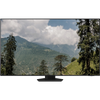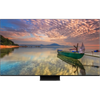A comparison of specs, key information, reviews, and best pricing from top retailers
Last updated -- hours ago | Report incorrect information
What we think

The PerfectRec TV team Learn more
Updated January 10, 2024·
The Samsung QN85B is often somewhat less expensive than the TCL QM8 and provides solid performance in bright rooms and for gaming, but its dark room performance is not as strong. If you prefer to save money and need a TV with good bright room performance, consider the Samsung QN85B. However, if you're after better dark room performance, enjoy watching movies that support Dolby Vision, and don't mind spending more, the TCL QM8 could be the better option. Both TVs offer similar gaming experiences, so your decision should be based on your viewing habits and budget. Give Feedback
this description is based on the product variant with some specs and product variant with some specs. At the time of writing, the variant with some specs cost some dollars and the variant with some specs cost some dollars.
Advantages of the Samsung QN85B (LCD)
- Good for sports
- Very good for news, talk, & other TV
- Very good for use as monitor
- Good for upscaling
- Very good motion processing
- Good viewing angle
Advantages of the TCL QM8 (LCD)
- Best in class for bright room
- Very good for dark room
- Very good for movies & TV
Key differences
Picture Quality
7.5
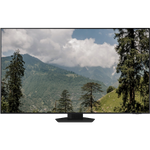
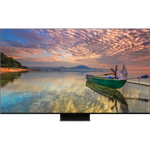
8.5
5.64/10
CONTRAST
8.00/10
7.5/10
COLOR VOLUME SCORE
9.2/10
miniLED FALD
PANEL TYPE
miniLED FALD
IPS
PANEL SUB-TYPE
VA
The TCL QM8 (LCD) has very good picture quality, while the Samsung QN85B (LCD) has good picture quality.
Movies & TV
7.3


8.3
5.64/10
CONTRAST
8.00/10
5.7/10
BLACK UNIFORMITY
8.5/10
7.5/10
UPSCALING
4.8/10
Yes
HDR10 SUPPORT
Yes
Yes
HDR10+ SUPPORT
Yes
No
DOLBY VISION SUPPORT
Yes
The TCL QM8 (LCD) is very good for movies & TV, while the Samsung QN85B (LCD) is good.
The Samsung QN85B offers better viewing angles than the TCL QM8, which means it's more suitable for group viewing in a wide living room setting. However, the TCL QM8 has superior contrast and black uniformity, which enhances the depth and detail in dark movie scenes, making it a better choice for a dark home theater environment.
Sports
7.1


6.5
8.0/10
MOTION PROCESSING
4.6/10
120Hz
REFRESH RATE
120Hz
10.0/10
INPUT LAG SCORE
7.6/10
7.5/10
UPSCALING
4.8/10
9.3/10
SDR BRIGHTNESS SCORE
10.0/10
Yes
HLG SUPPORT
Yes
The Samsung QN85B (LCD) is good for sports, while the TCL QM8 (LCD) is only fair.
The Samsung QN85B excels in sports watching due to its superior response time and motion processing capabilities, ensuring clearer images during fast action, and it handles reflections better, making it suited for brighter rooms. Conversely, the TCL QM8's performance is only fair in sports viewing as its viewing angles are narrower and its motion handling isn't as adept as the Samsung's, which might reduce the clarity of fast-paced games when viewed from the side or during quick camera movements.
Cartoons & Animation
8.0


8.9
7.2/10
COLOR GAMUT SCORE
8.1/10
7.5/10
COLOR VOLUME SCORE
9.2/10
9.3/10
SDR BRIGHTNESS SCORE
10.0/10
7.9/10
COLORS OUT OF THE BOX SCORE
7.6/10
7.2/10
GRAY UNIFORMITY
7.5/10
The TCL QM8 (LCD) and Samsung QN85B (LCD) are both very good for cartoons & animation, though the TCL QM8 (LCD) is somewhat better.
The Samsung QN85B and the TCL QM8 are both well-suited for watching cartoons & animation due to their good color performance straight out of the box. The TCL QM8 edges out with a very good color gamut, while the Samsung QN85B maintains a solid performance in that area as well.
News, Talk, & Other TV
8.2


6.8
9.3/10
SDR BRIGHTNESS SCORE
10.0/10
7.5/10
UPSCALING
4.8/10
The Samsung QN85B (LCD) is very good for news, talk, & other TV, while the TCL QM8 (LCD) is only fair.
The Samsung QN85B provides an excellent upscaling and high SDR brightness crucial for watching news and talk shows, with good colors out of the box, which helps in offering a pleasing viewing experience without needing adjustments. On the other hand, the TCL QM8, despite its higher contrast, doesn't upscale lower resolution content as effectively and has lower SDR brightness, leading to a less vibrant display for standard TV viewing.
Bright Room
9.2


9.9
7.5/10
VIEWING ANGLE
5.3/10
9.3/10
SDR BRIGHTNESS SCORE
10.0/10
8.9/10
HDR BRIGHTNESS SCORE
9.3/10
8.9/10
REFLECTIONS SCORE
8.9/10
The TCL QM8 (LCD) is best in class for bright room, while the Samsung QN85B (LCD) is excellent.
The TCL QM8 is best for watching TV in a bright room due to its highest SDR brightness and excellent HDR brightness, along with very good reflection handling, while the Samsung QN85B is also excellent in SDR brightness and very good in HDR brightness but has lower contrast than the TCL QM8.
Cost
$2,398


$1,304
$500
$1,000
$1,500
$2,000
$2,500
$3,000
$3,500
$4,000
The Samsung QN85B (LCD) has a price of $2,398 and the TCL QM8 (LCD) costs $1,304.
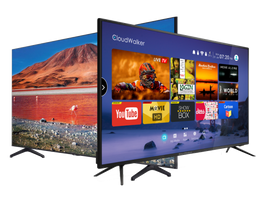
Let Us Help Find Your Perfect TV
Find your new TV
Key similarities
Gaming
8.2


8.3
8.0/10
RESPONSE TIME SCORE
8.1/10
10.0/10
INPUT LAG SCORE
7.6/10
8.0/10
MOTION PROCESSING
4.6/10
70.0/100
GAMING LOCAL DIMMING
90.0/100
9.0/10
GAME HDR BRIGHTNESS SCORE
9.3/10
The TCL QM8 (LCD) and Samsung QN85B (LCD) are both very good for gaming.
The Samsung QN85B boasts an exceptional input lag performance, making it highly responsive for gaming, and also features a rapid response time which minimizes motion blur for a clearer picture during fast action scenes. On the other hand, the TCL QM8, while also providing a very good response time for sharp images in motion, doesn’t match the Samsung’s input lag but compensates with a higher refresh rate for smoother gameplay.
Give feedback
We’re constantly working to improve.
How the Samsung QN85B (LCD) and the TCL QM8 (LCD) compare to other TVs
Spec Comparison
| Samsung QN85B (LCD) | TCL QM8 (LCD) |
GENERAL | |||
|---|---|---|---|
| Price | |||
$2,398 | $1,304 | ||
Brand | |||
Brand | Samsung | TCL | |
Release Date | |||
Release Date | March 4, 2022 | May 3, 2023 | |
Full name | |||
Full name | QN85QN85B | 85QM850G | |
Screen Size | |||
Screen Size | 85" | 85" | |
Screen Resolution | |||
Screen Resolution | 4K | 4K | |
TV FEATURES | |||
|---|---|---|---|
Operating System | |||
Operating System | Tizen | Google TV | |
Sound Quality Score | |||
Sound Quality Score | 7.5/10 | 7/10 | |
NextGen Ready | |||
NextGen Ready | No | No | |
HDMI Ports | |||
HDMI Ports | 4 | 4 | |
Coax Ports | |||
Coax Ports | 1 | 1 | |
DISPLAY QUALITY SCORES | |||
|---|---|---|---|
Picture Quality Score | |||
Picture Quality Score | 7.6/10 | 8.6/10 | |
Bright Room Score | |||
Bright Room Score | 9.2/10 | 9.9/10 | |
Gaming Score | |||
Gaming Score | 8.3/10 | 8.4/10 | |
Movies & TV Score | |||
Movies & TV Score | 7.3/10 | 8.3/10 | |
Sports Score | |||
Sports Score | 7.2/10 | 6.6/10 | |
PHYSICAL | |||
|---|---|---|---|
Dimensions w/o Stand (H x W x D) | |||
Dimensions w/o Stand (H x W x D) | 42.6" x 74.5" x 1.1" | 43" x 74.6" x 2.1" | |
Dimensions with Stand (H x W) | |||
Dimensions with Stand (H x W) | 45.1" x 74.5" | 45.6" x 74.6" | |
Weight without Stand | |||
Weight without Stand | 94.1 lbs | 105.6 lbs | |
VESA Mount | |||
VESA Mount | 600 x 400 | 600 x 600 | |
DISPLAY | |||
|---|---|---|---|
Color Depth | |||
Color Depth | 10 bit | 10 bit | |
Black Frame Insertion | |||
Black Frame Insertion | Yes | Yes | |
Auto Low Latency Mode | |||
Auto Low Latency Mode | Yes | Yes | |
Contrast | |||
Contrast | 5.6/10 | 8/10 | |
Local Dimming | |||
Local Dimming | 8/10 | 8/10 | |
SOUND | |||
|---|---|---|---|
Speaker Setup | |||
Speaker Setup | 2.2.2 | 2.1 | |
Speaker Power | |||
Speaker Power | 60 W | 40 W | |
Dolby Atmos | |||
Dolby Atmos | Yes | Yes | |
DTS:X | |||
DTS:X | No | Yes, Bypass only | |
Shopping
Samsung QN85B (LCD)
See more
Dig into reviews and images
What Hi-Fi?
John Archer | February 2023
"Particularly key to this is the fact that black levels are unusually good, on a level we haven’t seen from any IPS TV before. Build quality is impressive too, with a gleaming silver metallic frame and stand, and enough heft to suggest plenty of quality innards. High dynamic range content jumps off the screen with enough luminosity and intensity to really sell what makes HDR special."
Get a great deal on the Samsung QN85B (LCD) or the TCL QM8 (LCD)
About Samsung
Samsung, a South Korean electronics manufacturer, holds the title of being the largest global TV vendor in terms of units sold. They offer a diverse lineup of TV products that cater to various budget ranges. A notable achievement in recent years is the development of Quantum Dots, a technology that enhances color reproduction, resulting in richer and more vibrant hues. Samsung TVs are well-regarded for their high manufacturing quality and user-friendly software, making them an excellent choice for consumers seeking an intuitive viewing experience.
About TCL
TCL, the highly recognizable TV brand from China, has firmly established itself as the second-largest manufacturer in terms of sales volume. Renowned for striking an impressive balance between affordability, picture quality, and design, TCL TVs deliver a compelling overall package. While they have traditionally excelled in the low-end and midrange TV segments, TCL has recently made remarkable strides in the realm of high-end televisions, introducing impressive models that rival top competitors. Most TCL TVs use Roku software which is very user friendly and easy to use, but they have a few other models that use Google TV which has the largest app selection, but is not as user friendly as Roku.
Give feedback
We're constantly perfecting our model
TV guides you might be interested in
More comparisons for you
FAQs
FAQs about TVs
Why trust us
This information was produced and vetted by the PerfectRec TVs team. We are a product research and recommendation organization that meticulously reviews and evaluates the latest TV information and makes it digestible for you.
By the numbers
385
TVs evaluated
33,110
TVs stats compiled
21
Proprietary TVs ratings developed
115,230
Recommendations made
17,285
Consumer hours saved
About the TV team
Joe Golden, Ph.D
CEO and TVs Editor
Joe is an entrepreneur and lifelong electronics enthusiast with a Ph.D in Economics from the University of Michigan.
Jason Lew
Staff Expert & Software Engineer
Jason is a staff expert and software engineer that has been making laptop recommendations for 7 years and moderates one of the largest laptop subreddits.
Chandradeep Chowdhury
Staff Expert & Software Engineer
Chandradeep is a staff expert and software engineer and expert in televisions and monitors. He’s been making monitor recommendations for ten years.
Jaime Roldán
TVs Expert
Jaime is a Colombia-based TV expert. He is an electronics engineer with 8 years of experience in the telecom sector and has been making TV recommendations for 12 years.
